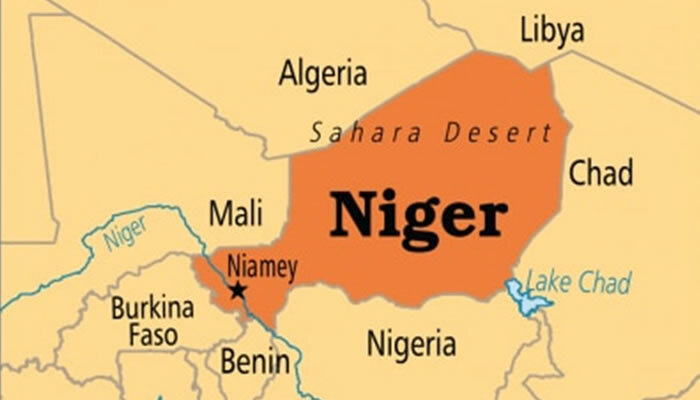In a surprising turn of events, three West African nations, Niger, Mali, and Burkina Faso, have collectively announced their withdrawal from the Economic Community of West African States (ECOWAS), raising concerns about the future of regional integration and cooperation.
The announcement, made simultaneously by the leaders of the three countries during a joint press conference in Bamako, Mali, has sent shockwaves across the region and sparked speculation about the reasons behind this unprecedented decision.
According to the joint statement issued by the governments of Niger, Mali, and Burkina Faso, the decision to withdraw from ECOWAS was prompted by what they described as "fundamental disagreements" with the regional bloc's policies and objectives. The statement cited concerns over ECOWAS's approach to addressing security challenges, economic disparities, and regional development priorities, accusing the organization of failing to adequately address the pressing needs of its member states.
The announcement, made simultaneously by the leaders of the three countries during a joint press conference in Bamako, Mali, has sent shockwaves across the region and sparked speculation about the reasons behind this unprecedented decision.
According to the joint statement issued by the governments of Niger, Mali, and Burkina Faso, the decision to withdraw from ECOWAS was prompted by what they described as "fundamental disagreements" with the regional bloc's policies and objectives. The statement cited concerns over ECOWAS's approach to addressing security challenges, economic disparities, and regional development priorities, accusing the organization of failing to adequately address the pressing needs of its member states.

Speaking at the press conference, President Mahamadou Issoufou of Niger emphasized the need for a more "effective and responsive" regional organization that prioritizes the interests and concerns of its member states. He stressed that the decision to withdraw from ECOWAS was taken after careful consideration and in consultation with the governments and people of Niger, Mali, and Burkina Faso.
President Assimi Goïta of Mali echoed President Issoufou's sentiments, emphasizing the importance of sovereignty and national interests in shaping regional cooperation efforts. He expressed confidence that the three countries would continue to collaborate on bilateral and multilateral initiatives aimed at promoting peace, stability, and development in the region.
Similarly, President Roch Marc Christian Kaboré of Burkina Faso underscored the need for a "renewed approach" to regional integration, emphasizing the importance of flexibility and pragmatism in addressing the complex challenges facing West Africa. He assured the international community that the withdrawal from ECOWAS was not a step towards isolationism but rather a strategic decision aimed at safeguarding the interests of the three countries.
President Assimi Goïta of Mali echoed President Issoufou's sentiments, emphasizing the importance of sovereignty and national interests in shaping regional cooperation efforts. He expressed confidence that the three countries would continue to collaborate on bilateral and multilateral initiatives aimed at promoting peace, stability, and development in the region.
Similarly, President Roch Marc Christian Kaboré of Burkina Faso underscored the need for a "renewed approach" to regional integration, emphasizing the importance of flexibility and pragmatism in addressing the complex challenges facing West Africa. He assured the international community that the withdrawal from ECOWAS was not a step towards isolationism but rather a strategic decision aimed at safeguarding the interests of the three countries.

The announcement of the withdrawal from ECOWAS has raised concerns among regional stakeholders and international partners about the potential implications for regional stability, economic cooperation, and collective security efforts. ECOWAS, established in 1975 with the aim of promoting economic integration and cooperation among its member states, plays a crucial role in addressing a wide range of regional challenges, including conflict resolution, trade facilitation, and capacity building.
The withdrawal of Niger, Mali, and Burkina Faso from ECOWAS is expected to have far-reaching implications for the organization's institutional framework, decision-making processes, and future direction. It remains to be seen how ECOWAS and its remaining member states will respond to this development and whether efforts will be made to address the concerns raised by the withdrawing countries.
As the international community closely monitors the situation, there is a growing consensus on the need for dialogue, cooperation, and constructive engagement to overcome differences and preserve the gains achieved through regional integration efforts in West Africa. The withdrawal of Niger, Mali, and Burkina Faso from ECOWAS underscores the complexities and challenges inherent in regional cooperation and underscores the importance of ongoing efforts to strengthen institutions, promote inclusivity, and build consensus on shared priorities and objectives.
The withdrawal of Niger, Mali, and Burkina Faso from ECOWAS is expected to have far-reaching implications for the organization's institutional framework, decision-making processes, and future direction. It remains to be seen how ECOWAS and its remaining member states will respond to this development and whether efforts will be made to address the concerns raised by the withdrawing countries.
As the international community closely monitors the situation, there is a growing consensus on the need for dialogue, cooperation, and constructive engagement to overcome differences and preserve the gains achieved through regional integration efforts in West Africa. The withdrawal of Niger, Mali, and Burkina Faso from ECOWAS underscores the complexities and challenges inherent in regional cooperation and underscores the importance of ongoing efforts to strengthen institutions, promote inclusivity, and build consensus on shared priorities and objectives.

